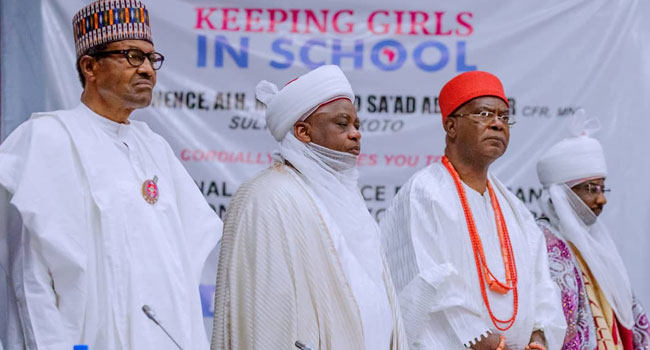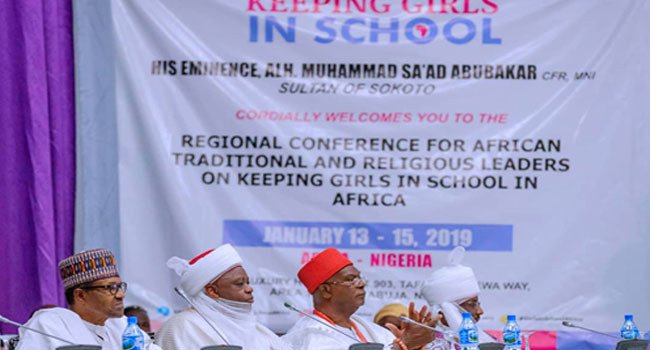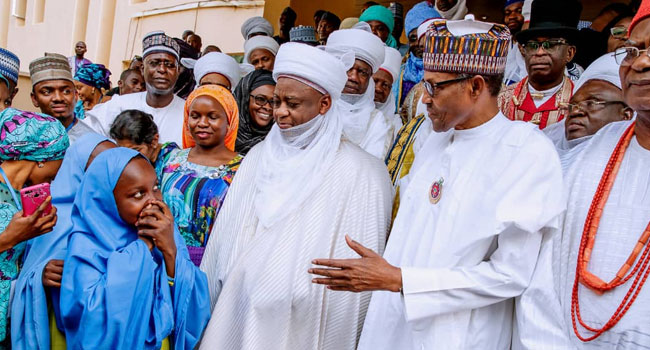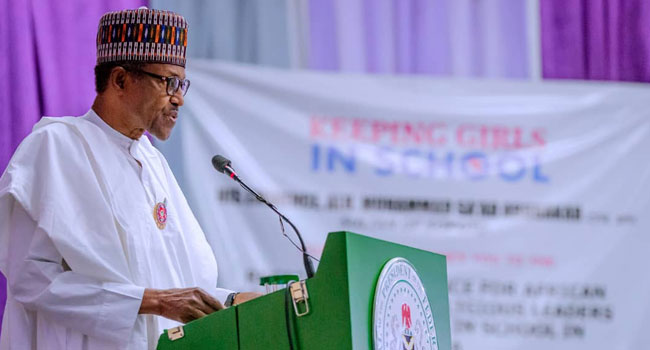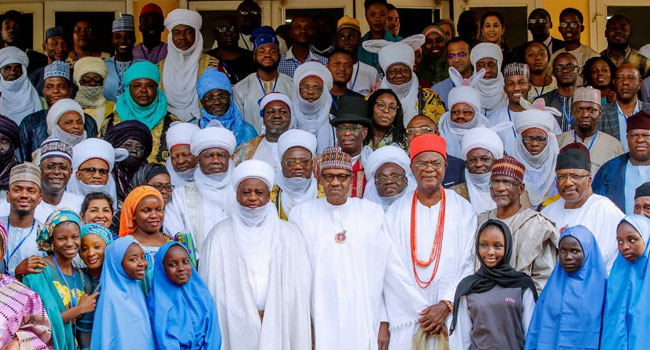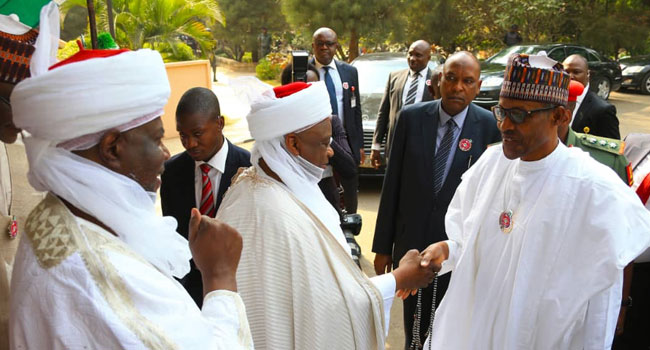Traditional rulers and religious leaders including the Sultan of Sokoto, Alhaji Muhammad Sa’ad Abubakar; the Emir of Kano, Alhaji Muhammadu Sanusi, among others on Monday discussed ways of keeping African girls in school.
The leaders made the discussions during the Regional Conference for African Traditional and Religious Leaders on Keeping Girls in School in Africa. The conference was held at the Nicon Luxury Hotel in Abuja.
The Sultan of Sokoto, Alhaji Muhammad Sa’ad Abubakar, at the event, highlighted the dangers of neglecting girl child education. According to him, the Keeping Girls in School Conference is designed to address the human capital deficit.
“We have been told by experts consistently that development of Africa in every society starts with human capital development. The conference is conceived and designed to address this human capital development deficit,” the Sultan said.
The Emir of Kano, Alhaji Muhammadu Sanusi, in his address said funds are needed from the public and private sector to fund girl child education.
“We have been spending a lot of time blaming the victims. So while we talk about cultural practices, attitudes, we also talk about the need for these schools to be available for funding by the public and private sector.”
READ ALSO: Dickson Offers Employment To Wives Of Slained Pilots
The Regional Conference for African Traditional and Religious Leaders on Keeping Girls in School in Africa is a three-day conference aimed at triggering a kind of renaissance in Africa, by launching the drive for girls child education in Africa.
It is also aimed at ensuring that African girls and future mothers are educated so that they produce and bring up healthy and educated children who will lead Africa to greatness in the 21st century.
President Muhammadu Buhari who was also at the event reminded religious and traditional leaders of their role to advise and assist the government in tackling the challenges. He also described traditional leaders as original guardians of history, security, traditions, customs and culture.


